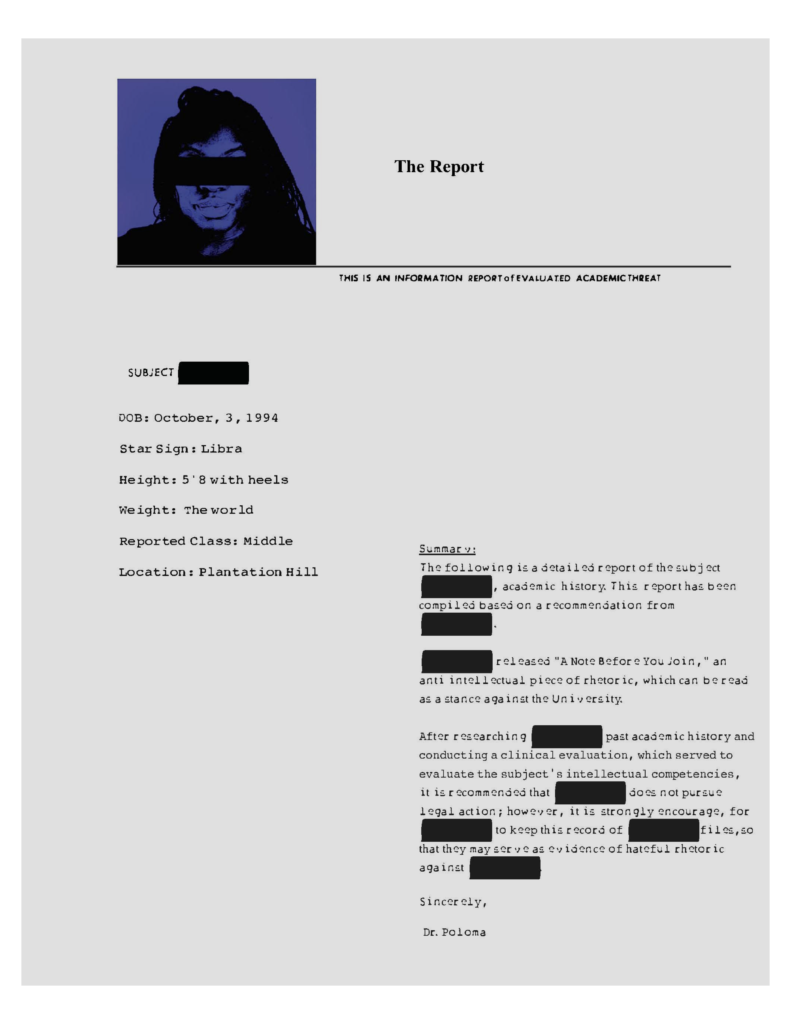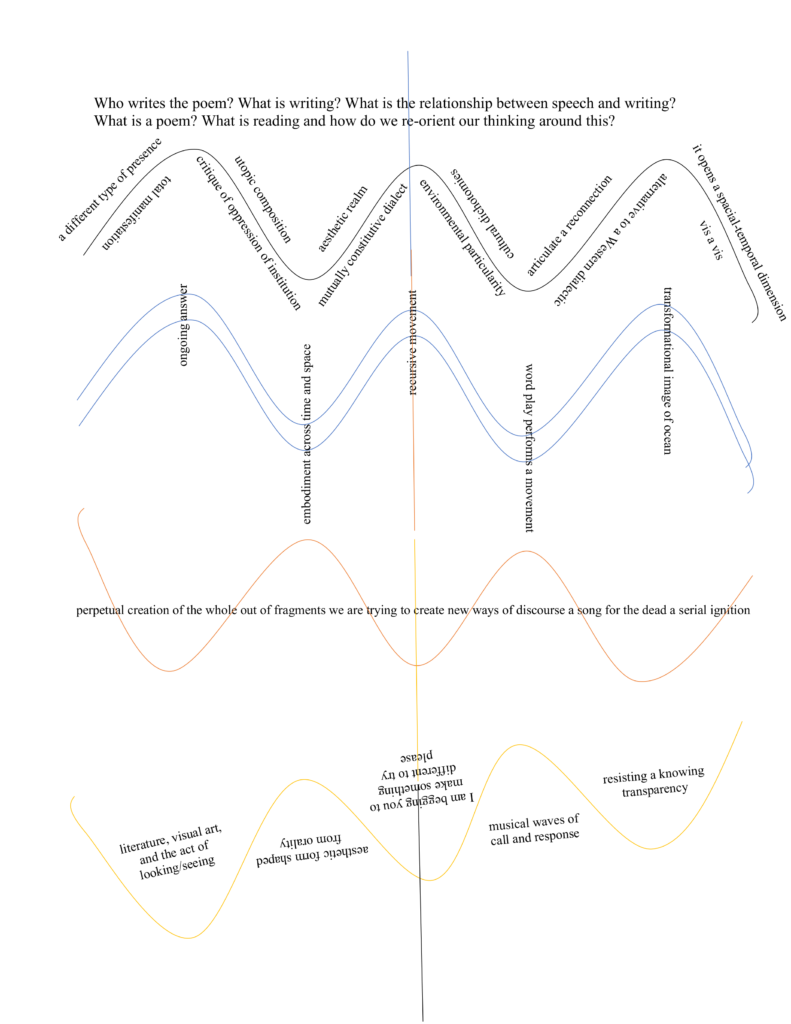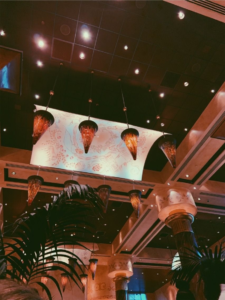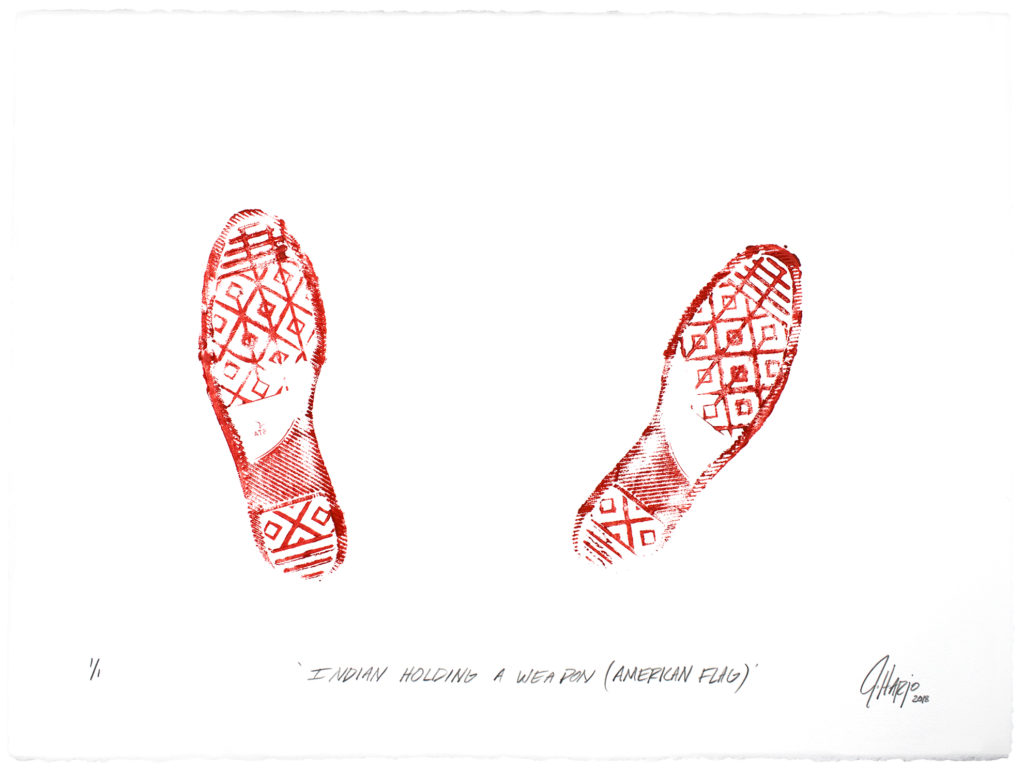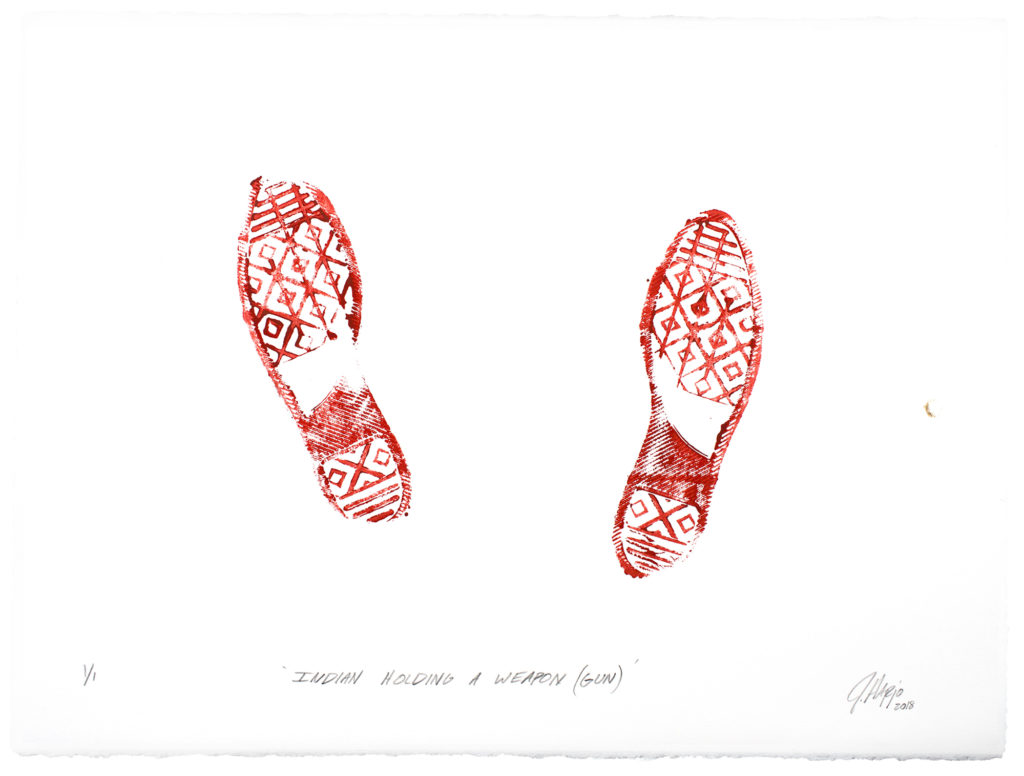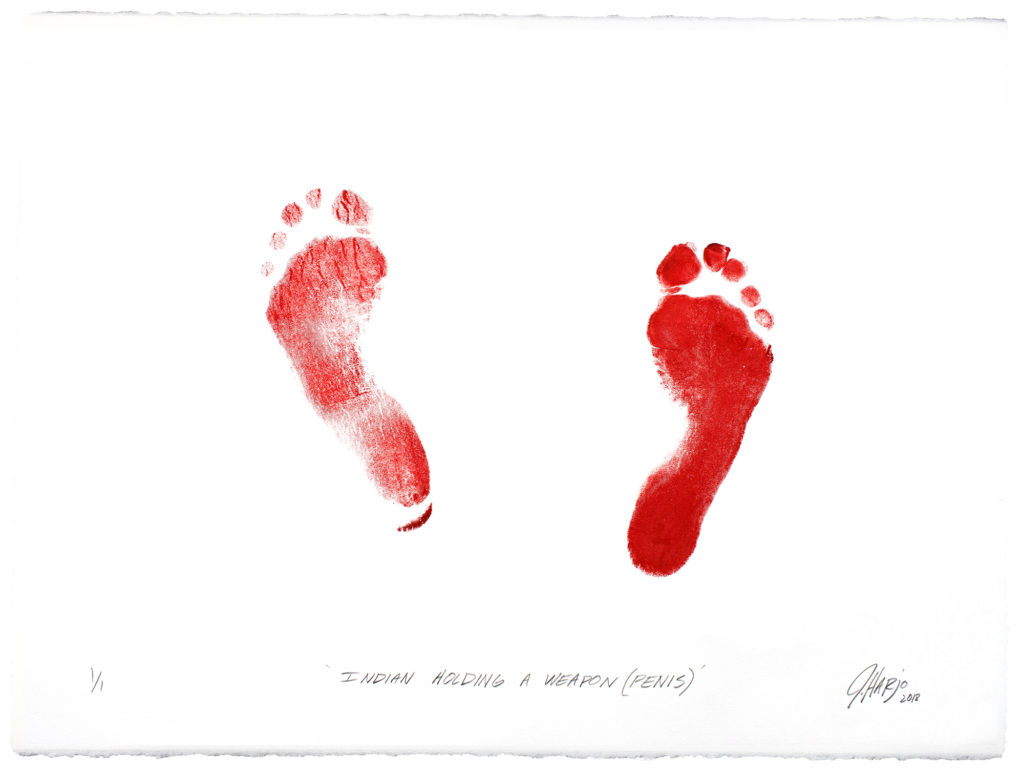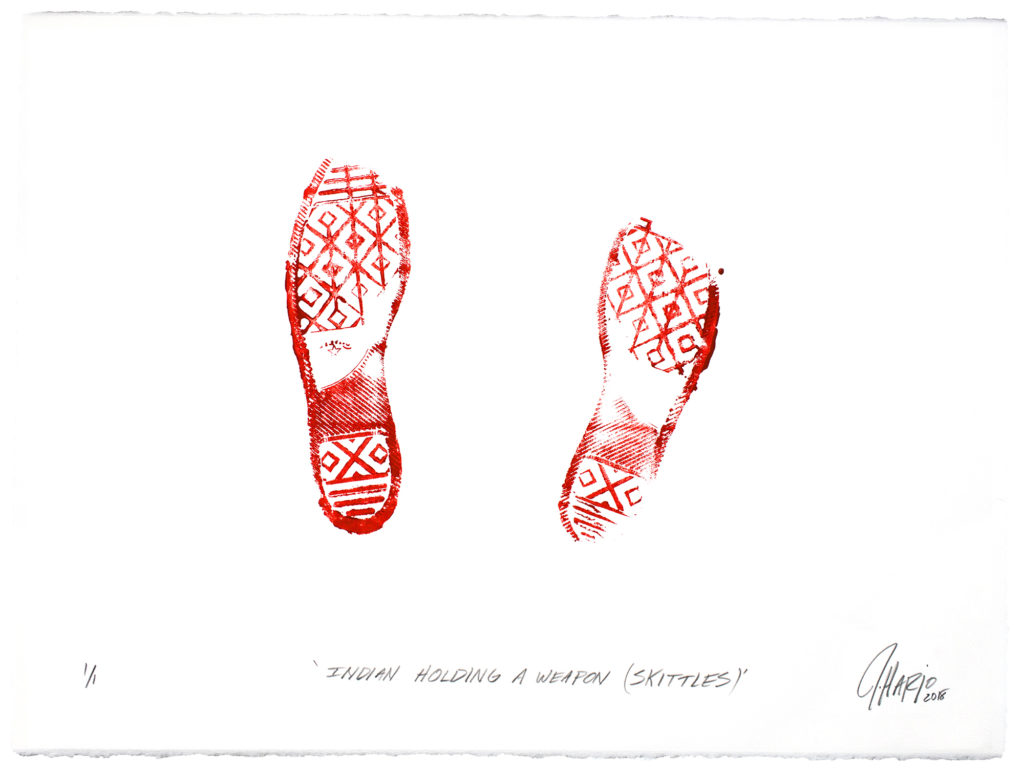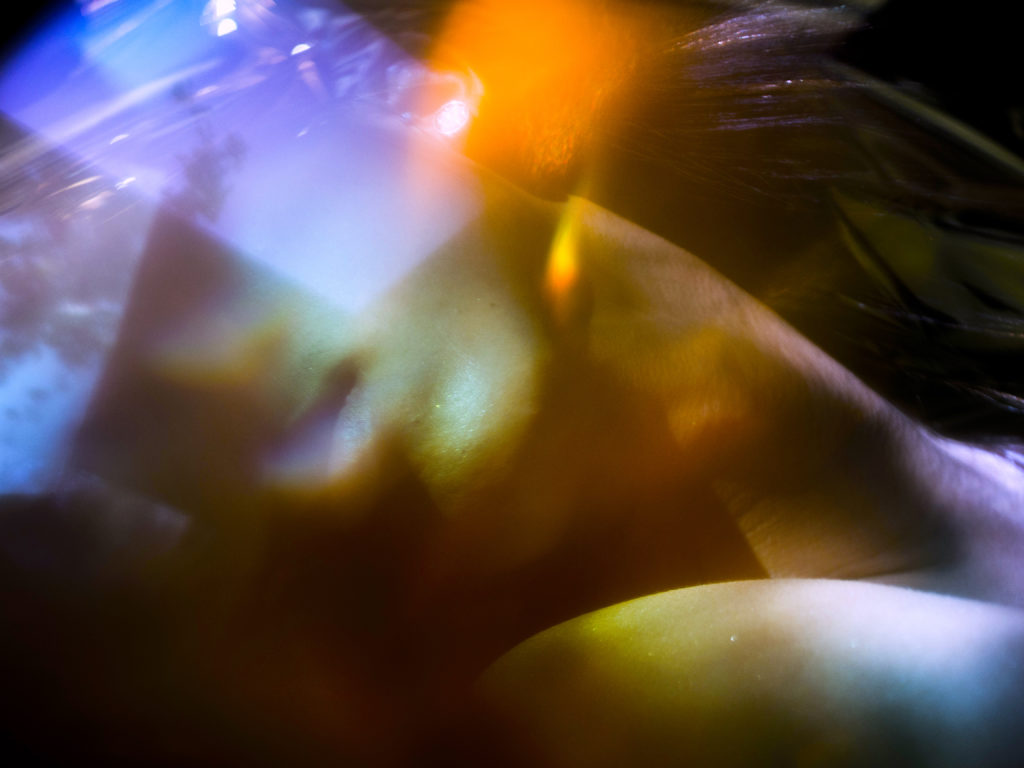An Excerpt from The Aeneid of Vergil: A New Prose Translation
BOOK I: Ira (Rage)
i.
I am going to tell you about a war and a man.
He was the princeliest of the Trojan survivors who fled to Italy, Fate’s refugee driven to Latium’s shores. Along the way, certain Olympian forces conspired to drag him down through the dirt and deep, and the long memory of ruthless Juno’s rage persecuted him. He suffered without end, tested in war, until, at last, he established a city, resurrected his gods in Latium, sired the entire Latin race from whence sprang Alba’s founding fathers, who raised the walls of mighty Rome…
Stop, Muse! Wait! Mihi causas memora. Remind me, Muse, what started it all? Wasn’t there some crime committed against divinity, some reasonthat the Queen of the Gods herself struck down this famously godly hero? Tell me how the adventures of one man set so much in motion. Does so much rage lurk in the hearts of goddesses?
Urbs antiqua fuit—There was an ancient city controlled by Tyrian colonists situated opposite Italy and the Tiber’s yawning mouth: Carthage. Politically powerful, rich, and hawkish in the arts of war, Carthage was said to be cherished by Juno above all other nations, including her beloved Samos. She stored her armor there. Her chariot, too. If the Fates allow it, she grew accustomed to thinking, Carthage will be the seat of power for all humanity. For a long time, the goddess clung to this belief and nurtured it. Then, she heard the prophecy.
“One day, a mighty nation of men supreme in war will be born from the blood of Troy and seek absolute power throughout the world. They will rise up and rip down your Tyrian towers. For thus it is written: They will bring cataclysm to your Libya,” the three Parcae churned.
This future horrified Juno. And yet, somehow, the past goaded her even more. The last war, the one waged at Troy on behalf of her beloved Argos, still lingered in her mind. Rage and vicious sorrow had not yet been carved out from the soul of Saturn’s daughter. Her heart hoarded each and every offense: the indignity of Paris slighting her divine image; her hatred for the entire Trojan race—descendants of Dardanus (one of her husband’s many bastards); what to speak of the offensive honors Jove was still lavishing on Ganymede, that boy-prince of Troy, whom, in the guise of an eagle, the King of the Gods—her husband—had carried off and raped in mid-air.
Time passed, but wounds like these do not heal. They rot. Now, tormenting the Trojan survivors atomized by Greek victory and that psychopath Achilles was Juno’s only consolation. Like playthings, she tossed the Trojans on the high seas and kept herself busy by keeping them a long way from Italy. For many years, the traumatized sailor-soldiers succumbed to what they thought were Fate’s motions, stumbling aimlessly around vast swaths of sea.
Tantae molis erat Romanam condere gentem. Monstrous task, wasn’t it, Muse, founding the nation of Rome?
ii.
With Sicily’s bluffs barely out of sight, the Trojans spread their sails to the unknown. On keels of solid bronze, they ride the rushing brine. The voyagers’ spirits are resilient as Juno, still nursing the wound deep in her heart, glimpses their progress.
“This is it, then?” she wails. “Their beginning is my end? Am I utterly incapable of preventing the Trojan prince’s arrival in Italy? Obviously, yes, the Fates forbid it, but didn’t Athena incinerate the Argive fleet and plunge its crews into watery graves? And for what? The belligerence of Ajax, son of Oileus? To punish one mortal criminal, Pallas was allowed to load up Jupiter’s lightning bolts and rain down His missiles from the clouds. She smashed the Greek ships and churned up the sea with squalls. I remember it well: Ajax was battling the flames, desperate to suck one final breath into his skewered lungs, when that daughter of Jove snatched him up in a whirlwind and impaled his corpse on a sharp crag. So how can it be that I, who step among the gods as their queen—Jupiter’s sister and wife—am forced to make war on a single people for years on end? How can anyone be expected to worship the power of Juno or pile offerings on Her altars now?”
Burning with rage, the Queen of the Gods speeds toward Aeolia. The storm-cloud kingdom is home to Austris, the raging south wind. She seeks King Aeolus, regent of the winds, who presides alone inside a sprawling cave.
Here at ocean’s end, the Wind King incarcerates the invisible, shackling the thrashing gales and thundering tempests. Unseen but not unheard, the inmates’ fury foments round the bars of the cells as they howl loudly to the mountain above. On the summit sits a fortress where Aeolus squirrels away, scepter in hand, attempting to curtail the prisoners’ passions and dampen their rage. The warden’s failure to maintain order would mean unprecedented disaster. Just the slightest slip, and the oppressed winds would launch themselves, hauling off sea and land and the vastness of sky into deep space. This doomsday scenario even terrifies the almighty Pater Omnipotens. Long ago, He drove the blusters deep underground and secured the secret silo by heaping a mass of mountain on top of it. Then, he appointed Aeolus to sit there and supervise as proxy-ruler—forever. The tenured Wind King was invested with just enough power to release and recall minor squalls, but only at Olympus’ command.
Now, Juno comes to Aeolus and pleads in the voice of a lowly lobbyist: “The Father of Gods and King of Men, my husband, Jupiter, entrusted you with the power to smooth and stir up waves with wind. You know that I hate the Trojans. As we speak, they’re zipping across the Tyrrhenian Sea trying to bring Ilium to Italy. Even their debunked household gods are coming along. Please, I beg you, whip up your gusts. Bury their sterns! Tear the fleet apart and scatter sailor-corpses on the sea. In return, Aeolus, I have fourteen girls—nymphs of unimaginable beauty. For your loyalty, I will bless you with Deiopea, the most striking. May she be forever willing and unwavering and live all her years with you, dear friend, and make you proud father to beguiling offspring!”
“My queen, you must but seek what it your heart desires; my only God-given duty is to fulfil your command,” replies the storm lord. “Whatsoever power I wield over this place is only mine thanks to you. To you, I owe my scepter (and, of course, your husband’s favor…), but it is you, dear lady, who first invited me to recline at Olympus’ tables. It was you, not your husband, who truly anointed me Lord of Cloud and Storm.”
With that, Aeolus swings round his spear and smashes the flank of the hollow mountain. The winds rush out like a military column marching beyond a brand-new breach or a hurricane hurtling toward catastrophic landfall. They bear down on the sea and stir the ocean from its deepest ravines. The high-winds of east and south converge to become Africus, the south-west wind, thick with storm-rains and swollen waves that surge for shore. Aboard the Trojan decks, crews clang and cables shriek. Suddenly, bands of clouds rake over the blue sky, shredding daylight from the Trojans’ sight. A dark night broods over the deep. It thunders axis to axis, and bolt after bolt lights up the sky. For the panicked sailors, everything portends the encroach of death.
Aeneas freezes. Fear paralyzes him, but only for a moment. He groans, presses his palms toward the stars, and cries out, “My friends! You who died beneath Troy’s high walls with your fingertips tracing your father’s chins are four times more blessed than I’ll ever be! If only I’d met my end at your hands, Diomedes, son of Tydeus, bravest of the Greeks! My life should have been poured out on the battlefield at Troy, where ferocious Hector lies in pieces, torn apart by Achilles’ ash-spear, and powerful Sarpedon, too. I belong in the River Simois, swallowed alongside the rest of Troy’s brave dead. My bones swirling around countless other helmets and shields…”
Aeneas spits out these bitter words, and an icy gust from the north screams back at him. All at once, the full force of the winds bear down on his sails, whipping the water to the sky. Oars splinter and prows thrash as the Trojan fleet broadsides the deep, their decks smashing into steep faces of liquid mountain. Some of Aeneas’ men dangle from the surge’s summit. Others, trapped between swells seething with sand, glimpse the terrestrial chasm waiting for them on the ocean floor. Africus snatches three of Aeneas’ ships and spins them across crags hidden nearby. It is a monstrous spine of stone slitting the surface of the sea, which the Italians call Arae, the Altars. Meanwhile, the East-Wind corrals three more vessels from the safety of open water and drags them toward the perilous Syrtian shoals. It is a cruel sight, galley after galley shattering in the shallows, entombed in bulwarks of sand.
A sprawling surge ambushes the ship piloted by Orontes Fidus, The Faithful, last living leader of Troy’s loyal Lycian allies. All his surviving troops are on board. But Aeneas, helpless, watches as the vessel is struck on its stern and its crouching helmsman is hurled overboard headfirst. A whirlpool gapes. Three times, the ship twirls around it, until, finally, the aqueous throat gulps her down. Her crew can still be seen, though, strewn here and there across the watery wasteland. Bodies bob alongside weapons, splintered pieces of ship, and treasures rescued from Troy. Next, Ilioneus’s sturdy galley goes down, followed by the ships captained by brave Achates, Albas, and old Aletes. The entire fleet, decimated. Down to every last loosened joint and fissured plank, the tempest vanquishes all.
Meanwhile, Neptune, god of the sea, senses the unrest in his realm. A storm has been unleashed. My standing depths are summoned from their ocean beds. Greatly disturbed, but nonetheless serene, the sea god lifts his gaze, breaching the water’s boundary with his crown and surveils the depths of his kingdom from above. Scattered before him is Aeneas’ fleet. Trojans entombed by waves and a ruinous sky. His sister’s handiwork does not elude him. Juno.
At once, Neptune summons the East and West Winds. “Children of Astraeus and Eos, your confidence in your privilege is misguided,” booms the god of the sea. “How dare you commingle Heaven and Earth without my permission and wreak such havoc! Why I ought to—No. Better to reconcile the rebellious waters first. But, next time, you will be punished for your disobedience. Now, go! Fly away to that lord of yours and tell him: Rule of the sea and the fearsome trident do not belong to him. They are mine. It was all assigned by lot, long ago. That savage rock is your home, so tell Aeolus to throw his tantrums there, in his own godforsaken cave. And for Jove’s sake, remind him to keep that blustery prison on lockdown!”
While Neptune rebukes the winds, the swollen seas are placated, the huddled clouds disperse, and the sun returns. His son, Triton, and the nereid Cymothoë begin peeling the ships off the jagged rocks. The god of the sea finishes the job himself. He uses his trident to forklift the fleet to freedom then slits open a course for them through the dangerous shoals. As he returns equanimity to the sea, Neptune’s chariot runs over the surface, smoothing the waves with its nimble wheels. The scene is not unlike when sedition erupts, as it so often does (even among the best of people, anger furnishes its own violence), and the silent majority vent the fury in their souls by sending torches and rocks soaring through the air. Then, by chance, they catch sight of some man, whose public record of piety and distinguished service endow him with that certain gravitas. All hush and stand still with their ears outstretched while his words restore their minds to order and their hearts to complacency. Just so, the din of the waves simply fades away the moment their leader cruises by, gazing out beneath the clear skies that once again stretch over his realm.
Satisfied that he has restored order, Neptune loosens the reigns, and his chariot flies obediently on.
iii.
Aeneas’ exhausted men set a desperate course for the nearest shore. They steer toward the Libyan coast where a secluded island waits for them. Its opposing sides fasten a harbor, a natural barrier where the deep slams in, and the hollow reclaims the cleaved waters as its own. Enormous boulders and twin crags on either side warn off the heavens. Beneath these broad peaks, the sea takes refuge and falls silent. Overhead, a shimmering woodland screens the land that lies beyond. The trees flick their sinister shadows down into a cove on whose far side a cavern roofed with dripping rocks dangles from the cliff’s brow. The freshwater pooling inside eats into the living rock, signaling that this place is home to nymphs. Here, the battered fleet can moor safely without ropes, anchors, or hooks.
Aeneas guides the survivors into the cove. A mere seven ships. The Trojans spring from their decks, lusting for land. They snatch at the sands and stretch their brine-soaked limbs on the shore. Achates picks up a piece of flint and strikes a spark. He fans the newborn fire with dead leaves, nourishing it with brushwood until flames seize in the dry tinder. The men, already fatigued with destiny’s latest twist, set out what little food remains. Ceres’ loaves and a few, scattered utensils. The grain is soaked with seawater. They parch what they can over the flames before grinding it on stone.
Aeneas, meanwhile, has slipped off toward the nearby crags. He scrambles up, hoping to glimpse a sign of his men that the storm has ripped away: Antheus, the Phrygian galleys, Capys, or Caïcus, with weapons piled high on his galley’s stern. But there’s not a ship in sight. Instead, in the distance, three stags comb the beach. The entire herd trails behind in a long column, grazing in the vale. Aeneas seizes his bow and loads it with his quickest arrows, the ones Achates carries for him, always. First, he dispatches the leaders. Three noble heads crowned with branching antlers are instantly laid low. Then, he turns on the multitude. His shots scatter the herd, forcing the victims into the verdant woods, but Aeneas does not stop shooting until the earth is triumphantly bathed with the blood of seven corpses—one for each of his lost ships.
He rushes back to the harbor to share the kill with his men. What remains of the wine that Acestes, the good Sicilian king, insisted on stashing away in casks the day they sailed from Trinacria, is divvied up. Aeneas is eager to ease his men’s long-tormented souls and stands to make a toast.
“My friends, none of us are strangers to calamity. To you who have suffered ordeals even worse than this, I say: To this, too, God will grant an end. You who have crept close to rabid Scylla’s innermost crags, which howl with her hysteria, and survived the Cyclops’ canons, summon your courage one more time! Shake off your heartbreak and terror! One day, we will recall all of this fondly. No matter how much misery and horror hunts us now, we must press on for Latium. There, Destiny waits for us, offering us asylum—a new home. In Italy, Troy will rise again. So, endure, men, endure! Save your strength for what comes next.”
Though the words are undaunted, and the countenance feigns hope, Aeneas is sick with a hellish anxiety. He suppresses an immeasurable grief, packing it deep within his soul. But his men take heart. Enough, at any rate, to gird up for dinner.
First, they strip the hide from the stags’ ribs and slide out their vital organs. Next, they carve up the animals and skewer the flesh, still quivering, on spits. Bonfires are lit along the beach, and the men tend to the make-shift grills. Then, they feast. They stretch out along the beach-grass, brimming with well-aged wine and tender venison, and their old vitality comes bounding back. When their hunger is sated and the boards cleared away, at last, the topic they’ve all been avoiding is broached. Whispers back and forth vacillate between hope and despair.
Still alive?
Maybe, even now, suffering the last?
No, he no longer hears when called.
Most bitterly of all, their quiet leader mourns. Orontes! What cruel fates for Amycus, Lycus, brave Gyas, and even braver Cloanthus…
But all the men hear is pious Aeneas, sighing occasionally to himself.
iv.
Soon, the feast is finished, and the mortals collapse into a dense sleep. From the firmaments, Jupiter Omnipotens surveils the sail-winged sea, rolling lands, coasts, and sprawl of nations. At Heaven’s summit, He stops and fixes His awareness on Libya. The immortal broods over what He sees. Always, the suffering of mortals.
Suddenly, Venus flashes to her father’s side. She appears unusually despondent. Heartbreak shines in her eyes as she implores the king of gods and men, “O qui res hominumque deumque aeternis regis imperiis et fulmine terres. Tell me, You-Who-Reign-Eternally-And-Terrify-The-World-With-Your-Thunder, what could my Aeneas, my Trojans, have possibly done to You? All this butchery, and now the world clamps shut against them? Don’t tell me it’s because of Italy. Father, remember what you promised: ‘The Roman race shall spring forth, restored from Teucer’s blood. Eons shall pass, but our people will be restored to power. One day, as sole lords of the earth, they shall rule, and dominion over all lands and seas shall be theirs!’
“Unless, of course, something has changed Your mind? How dare You! Leveraging Destiny against Fate was my only consolation for Troy’s ruin. So much death! So much destruction! Even now, those hideous Fates still hound my boys…My poor boys! Haven’t they suffered enough? When will You put an end to it?
“Even the traitor Antenor squeezed right through the Greek siege. That wizened turncoat waltzed safely through the Illyrian gulfs and across the innermost Liburnian lands. He made it all the way to the Timavus’ headwaters and was permitted to settle where the river’s nine mouths gush down the mountainside and drown the nearby fields. There, he set up a city for his Trojans, gave it a Trojan name, and put his armor on display. In Troïa this very moment, Priam’s old counselor sinks into senility in serenity, but us—your own flesh and blood, to whom you vowed to deliver the very bulwark of Heaven—our galleys go missing. It’s a disgrace, Father! Because of one goddess’s anger, you have betrayed us all. For too long, you have diverted Destiny from Italy’s borders. Is this the reward for piety, then? Is this how you press power’s scepter back into your children’s palms?”
Jove smiles. It is the same expression that He uses to placate the skies and storms. He kisses His daughter on her pretty mouth, then replies, “Put away your worries, my Cytherea. The destiny of your progeny remains as it was. You will see Lavinium’s promised walls and exalt your gracious Aeneas to the stars. Nothing has altered My will. Your son…”
Here, the King of Men and Gods pauses. If He speaks, His words will further unwind the scroll of Fate, setting dark, arcane things in motion. But her cares are so heavy. For so long now, they have consumed her.
“Your son will wage a huge war in Italy,” Jove continues. “He will pulverize defiant tribes, build cities, and lay down laws and customs for his people. However, just three summers will see Aeneas rule as governor of Latium, and only after he pushes back the Rutulians and huddles for three winters in makeshift camps. But Aeneas’ boy, Ascanius—Ilus, he was called when Ilium was sovereign—he will take the name of Iulus, and his reign will be long. Thirty magnificent cycles of whirring months. At the height of his rule, he will transfer the seat of power from Lavinium to Alba Longa and build a wall. There, for three hundred years, Hector’s descendants will govern, until Mars impregnates the priestess-queen Ilia, and she gives birth to twins. Then, Romulus, proudly draped in the tawny pelt of the she-wolf that nursed him, will claim sovereignty of his ancestors’ descendants, shut them fast within Mars’ walls, and name them after himself. On these Romans, I place neither limits of space nor time: I grant them an empire with no end. Even my prickly Juno—who is now consumed with harassing sea, earth, and sky—will eventually come around to My better counsel. Alongside Me, she will cherish the Romans, and they will be the toga-wearing masters of the world.
“Long years will glide by, and an age will come when the House of Tros, the great-great-great-grandchildren of Aeneas’ grandfather, will dominate Greece and enslave Achilles’ Phthians and Agamemnon’s once-bright Mycenaeans. Then, the Trojan Caesar will be born. His empire will end only at the ocean, and his fame among the stars! Julius, they’ll call him, a name passed down from his great forebear, Iulus. And you, Cytherea, you will be rich. Carefree and loaded with the spoils of wars in the East. The day will come when you welcome your mortal offspring into Heaven. On earth, he will be worshipped as a god. At last, the bitter eons of war will soften, and those grey-haired virtues, Fides and Vesta, will help write Rome’s laws. Then, Remus and his brother, Romulus…
“In any case, the Gates of War, a terrible iron thing forged of locked bars, will be closed— eventually. Furor Impius, Impious Rage, will be imprisoned inside, squatting above her arms stockpile with her hands secured behind her back by one-hundred knots hard as bronze as, from her blood-smeared lips, she roars and roars.”
Omnipotens has spoken, but. Just in case Queen Dido (who, naturally, is ignorant of What-Has-Been-Spoken) decides to refuse the Trojan guests soon to arrive at her gates, He summons His messenger, Mercury.
Go to Carthage, jump right down through its brand-new towers. Ensure that the Trojans are properly welcomed.
Mercury takes off that instant, rowing hard through the vast sky with wings for oars until he touches down on Libya’s shore. He executes the orders at once, and one by one, fierce Phoenician hearts unknowingly acquiesce to the will of Jove.
Most of all, the queen is implanted with a tender disposition. A certain softness, that is, for men from Troy.
Translator’s Note:
In joining the slender ranks of women translators of Vergil’s Aeneid, my aim is not to offer a definitive edition of the text ‘from a female perspective’ but an alternate one that diverges from the tradition in two ways.
The first is style. Verse translations of the Aeneid can sound archaic to the modern ear, while prose renditions are often dense and agonizingly literal. This version, therefore, styles the verse in prose recognizable to readers of contemporary fiction. For instance, ‘focalizations’ are rendered as thoughts using italics, sub-sections modernize pacing, and programmatic words and phrases that are ‘impossible to translate’ are retained in Latin. Rather than using syntax and form to compress meaning, the Latin’s inherent ambiguities are preserved, leaving uncomfortable questions open for the reader to decide.
The second is women. Vergil’s women are not Homer’s, and their anger drives much of the narrative action. Yet centuries of critical interpretation and translation have filtered Juno, Dido, Amata, and Venus’ explosive passions and pathos through the lens of St. Augustine’s 4th century review: a most delightful spectacle of vanity. The ‘spectacle’ these women create is the one Vergil’s men dare not; they insist on bringing the brutalism of the ‘Roman Dream’ into the forum for all to see. Far from casting Vergil as ‘proto-feminist,’ this translation aims only to convey the complexity and resilience of the ancient epic heroines who first spoke so closely and clearly to me as a young girl. Today, I hear them louder than ever. From the Sibyl’s cave, they warn us about ideology’s consequences: the collapse of representative government, civil war, dictatorship. “Woman, man, or deity,” they whisper, “we all lose.”
While there is so much more that I could say about my translation, it’s not what I say about the Aeneid and its place in our society that’s important. What matters is bringing Vergil’s ancient Latin verse to a new generation of English readers so that they can decide for themselves. Dux femina facti.

K.E. Knox is a writer and editor based in New York City. She completed her M.Phil. in Classics at the University of Oxford then left academia to work in fashion. She is the author of Genius of a Generation: Alexander McQueen and Culture to Catwalk: How World Culture Influences Fashion. Her translation of the Aeneid is a labor of love in progress.

Publius Vergilius Maro (‘Vergil’) was born in 70 BCE near Mantua, Italy. He is considered ancient Rome’s most famous poet and an early pillar of Western Literature. At the time of his death in 19 BCE, Vergil felt that the Aeneid was unfinished and ordered the manuscript burned. The twelve-book poem, however, was not destroyed and went on to become Rome’s national epic. He is also the author of the Eclogues and the Georgics.

 BACK TO ISSUE
BACK TO ISSUE
